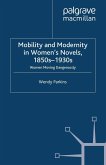In Imagining Inclusive Society in Nineteenth-Century Novels, Pam Morris traces a dramatic transformation of British public consciousness that occurred between the Reform Acts of 1832 and 1867. This brief period saw a shift from a naturalized acceptance of social hierarchy to a general imagining of a modern mass culture. Central to this collective revisioning of social relations was the pressure to restyle political leadership in terms of popular legitimacy, to develop a more inclusive mode of discourse within an increasingly heterogeneous public sphere and to find new ways of inscribing social distinctions and exclusions. Morris argues that in the transformed public sphere of mid-nineteenth-century Britain, the urbane code of civility collapsed under the strain of the conflicting interests that constitute mass society. It was replaced by a "code of sincerity," often manipulative and always ideological in that its inclusiveness was based upon a formally egalitarian assumption of mutual interiorities. The irresistible movement toward mass politics shifted the location of power into the public domain. Increasingly, national leaders sought to gain legitimacy by projecting a performance of charismatic "sincerity" as a flattering and insinuating mode of address to mass audiences. Yet, by the latter decades of the century, while the code of sincerity continued to dominate popular and political culture, traditional political and intellectual elites were reinscribing social distinctions and exclusions. They did so both culturally -- by articulating sensibility as skepticism, irony, and aestheticism -- and scientifically -- by introducing evolutionist notions of sensibility and attachingthese to a rigorous disciplinary code of bodily visuality. Through an intensive, intertextual reading of six key novels (Bronte's Shirley, Thackeray's Henry Esmond, Dickens's Bleak House and Our Mutual Friend, Gaskell's North and South, and Eliot's Romola) and an array of Victo
Hinweis: Dieser Artikel kann nur an eine deutsche Lieferadresse ausgeliefert werden.
Hinweis: Dieser Artikel kann nur an eine deutsche Lieferadresse ausgeliefert werden.








